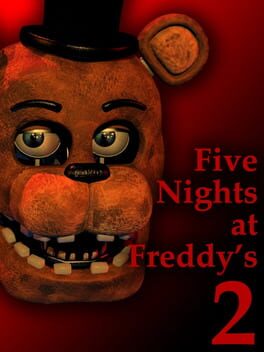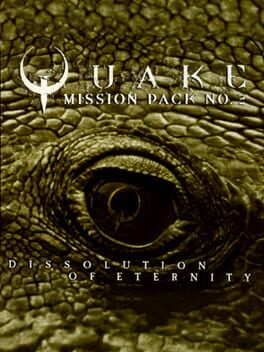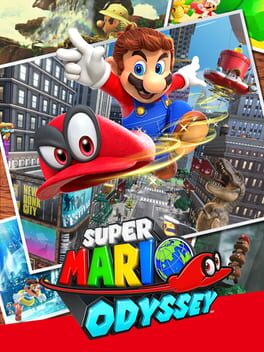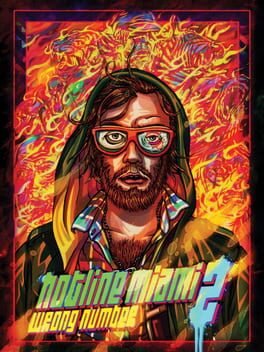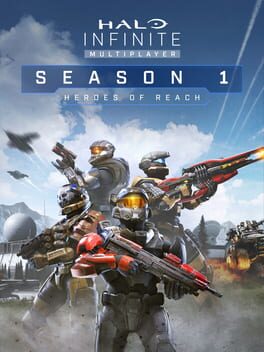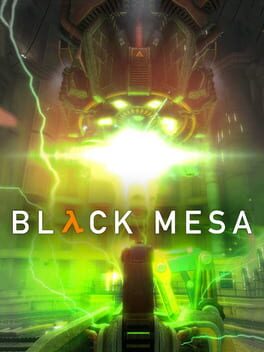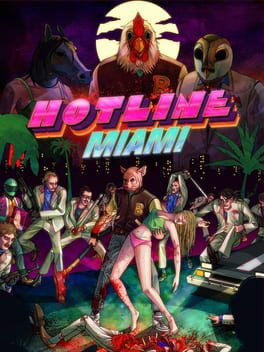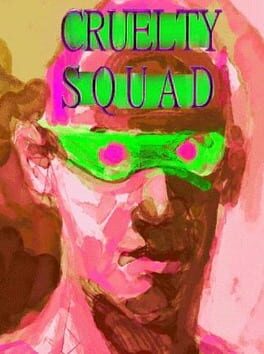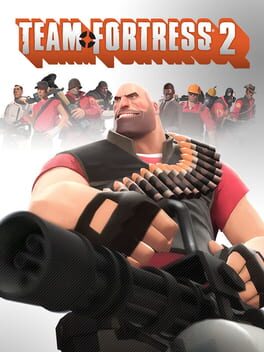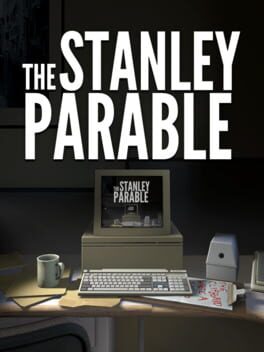StonkoRocko
488 Reviews liked by StonkoRocko
Super Mario Odyssey
2017
I can't help but surrender to its ambitions.
Has less in common with the 80s and 90s films its constantly referencing and more with tv projects like the second season of True Detective or Lynch and Refn's recent ventures in the medium. It's specially interesting how much Dennaton is capable to channel Refn to a point where this and Too Old To Die Young share some of the same thematic elements: from the increasing pressence of nationalist movements in US to the overall depiction of violence as some sort of comfrontation for the viewer's accomodated expectations of it in the medium.
Flawed to the core. Where the barebones of a narrative worked for the first game's own deconstruction and exploration of the vacous nature of its protagonists, here it plants so many threads it feels mostly loss of what it wants to develop, not because is really that difficult to understand, but because of its adherence to explore/connect the audience to these characters that feel less compelling in their archetypical nuisances, and the design of the levels can be really frustrating at times. By making these spaces more open, it also makes one of the first game's way to make the player more adjust to it (being able to create you own path to finish it) less effective. Instead, it seems that it wants you to go more for stealth and mantaining an active approach, to be contantly urgent and knowledgeable of the enemy placement, and i love that this develop into making these space more oppresive for the players to explore and limiting the options to these individual characters as their own form of expression through the violence (specially that one of the characters can't kill if you didn't pressure him to make the game easier), but when it does it wrong, it limits our vision badly, making the option of looking beyond the established field of view an afterthought: where we can kill an enemy in one point of the map, but our behind is constantly exposed or we don't have enough view to avoid getting shot and/or take cover on time when we are in front of them.
For the rest, i love that it's essentially about sequels, more or less about the exploitation of its own metanarrative being constantly appropiated to continue the satisfaction of its audience. Jacket is nothing more than an inspiration for wannabes who do nothing but projecting a way to escape from the roles that the zeitgeist have placing them or abusing the power that they are already given by the narrative itself.
But i think is the end when the game completely adheres to this idea the most. Finds the sense of going back to the past without any sort of futility to explore the present as some kind of meaningless endeavour. It's more thematically exposed than its predecessor and i found this game surprisingly melancholic in its final stages because of it. Jacket and Biker can retroactively change their own path for their own benefit, no matter how dissapointing the end result may be. Here, every effort is pointless in the long run. Almost no one comfronts what they are as individuals, don't go against the narrative at play, but are trustworthy to it until it catches them and devalues them to simple images, npcs and enemies to defeat.
Makes the end of the world a beautiful conclusion in which even the illusion of another title screen give a sense of hope that the own player can make the better call.
Has less in common with the 80s and 90s films its constantly referencing and more with tv projects like the second season of True Detective or Lynch and Refn's recent ventures in the medium. It's specially interesting how much Dennaton is capable to channel Refn to a point where this and Too Old To Die Young share some of the same thematic elements: from the increasing pressence of nationalist movements in US to the overall depiction of violence as some sort of comfrontation for the viewer's accomodated expectations of it in the medium.
Flawed to the core. Where the barebones of a narrative worked for the first game's own deconstruction and exploration of the vacous nature of its protagonists, here it plants so many threads it feels mostly loss of what it wants to develop, not because is really that difficult to understand, but because of its adherence to explore/connect the audience to these characters that feel less compelling in their archetypical nuisances, and the design of the levels can be really frustrating at times. By making these spaces more open, it also makes one of the first game's way to make the player more adjust to it (being able to create you own path to finish it) less effective. Instead, it seems that it wants you to go more for stealth and mantaining an active approach, to be contantly urgent and knowledgeable of the enemy placement, and i love that this develop into making these space more oppresive for the players to explore and limiting the options to these individual characters as their own form of expression through the violence (specially that one of the characters can't kill if you didn't pressure him to make the game easier), but when it does it wrong, it limits our vision badly, making the option of looking beyond the established field of view an afterthought: where we can kill an enemy in one point of the map, but our behind is constantly exposed or we don't have enough view to avoid getting shot and/or take cover on time when we are in front of them.
For the rest, i love that it's essentially about sequels, more or less about the exploitation of its own metanarrative being constantly appropiated to continue the satisfaction of its audience. Jacket is nothing more than an inspiration for wannabes who do nothing but projecting a way to escape from the roles that the zeitgeist have placing them or abusing the power that they are already given by the narrative itself.
But i think is the end when the game completely adheres to this idea the most. Finds the sense of going back to the past without any sort of futility to explore the present as some kind of meaningless endeavour. It's more thematically exposed than its predecessor and i found this game surprisingly melancholic in its final stages because of it. Jacket and Biker can retroactively change their own path for their own benefit, no matter how dissapointing the end result may be. Here, every effort is pointless in the long run. Almost no one comfronts what they are as individuals, don't go against the narrative at play, but are trustworthy to it until it catches them and devalues them to simple images, npcs and enemies to defeat.
Makes the end of the world a beautiful conclusion in which even the illusion of another title screen give a sense of hope that the own player can make the better call.
Black Mesa
2015
Hotline Miami
2012
Cruelty Squad
2021
It's easy to take a glance at Cruelty Squad's unpleasant artstyle and dismiss it for being obvious and unsubtle about its intent, when most of critical praise seemingly rests on its ability to create a playable shitpost deep fried meme that bluntly satirizes the sewer corporate modern age we live in and not much else inbetween. That however would be understating the talent and craft that is required to make such effective "heavy handed" art like Cruelty Squad.
Baffling to realize that this was Ville Kallio's first shot at videogames, because he displays such a strong understanding of the medium and utilizes so much of its strengths in ways that no other developers have really tapped into to create what I can only describe as a arthouse masterpiece of counter intuitive art and game design. Our infactuation with cyberpunk dystopia has created such pleasing worlds to look at in all of fiction that the only thing Cruelty Squad had to do was present the existential nightmare we already live in it its true colors. Making a house the most expensive item that gates you from the rest of the game's content might come across as portentous hassle for the player and an easy cheap jab at Capitalism™, but it doesn't make its statement any less truer and effective.
Getting accustomed to Cruelty Squad vomit inducing textures ends up becoming an inevitability, and the game beneath it surprisingly reveals enough enticing complexity and kinesthetic gratification that will distract you from the uglyness of it all. DNA taken straight out of Quake make traversal in Cruelty Squad's industrial purgatory oddly satisfying and addicting to exploit as you discover there is fun in retrying missions to find new secrets in the open ended maze like levels and speedunning CEO and landlord assassinations, raking in the dough to invest and buy more expensive game changing implants that further blur the line between man and biomachine monstrosity. Sooner than expected, you end up forgetting the garish mismatched colors and low poly disorienting textures that assault your senses, and Cruelty Squad ends up becoming just another game to master like all the others that came before it.
Were this any other game, I would be taking down a couple of points for it losing its luster after the initial hours, but Cruelty Squad losing its repulsiveness over time just ends up reinforcing its message that much more. In the same way that Cruelty Squad visualizes what violent videogames must look like to our parents, it displays for a brief moment the reality and future humanity has devised for itself, as if putting on the They Live glasses for the first time. But eventually we get used to it. And we forget, we comply, we find pleasure in it. Luckily we get the chance once in a while to experience something like Cruelty Squad to remind us that we are all just meat sacks ticking up and down on a graph, selling ourselves short to the highest bidder.
PS: The easiest method I found out to make quick money in Cruelty Squad was to kill Elon Musk's personification over and over again and betting on the stock market right after. Something very poignant and cathartic about that. Don't tank my crypto next time, asshole.
Baffling to realize that this was Ville Kallio's first shot at videogames, because he displays such a strong understanding of the medium and utilizes so much of its strengths in ways that no other developers have really tapped into to create what I can only describe as a arthouse masterpiece of counter intuitive art and game design. Our infactuation with cyberpunk dystopia has created such pleasing worlds to look at in all of fiction that the only thing Cruelty Squad had to do was present the existential nightmare we already live in it its true colors. Making a house the most expensive item that gates you from the rest of the game's content might come across as portentous hassle for the player and an easy cheap jab at Capitalism™, but it doesn't make its statement any less truer and effective.
Getting accustomed to Cruelty Squad vomit inducing textures ends up becoming an inevitability, and the game beneath it surprisingly reveals enough enticing complexity and kinesthetic gratification that will distract you from the uglyness of it all. DNA taken straight out of Quake make traversal in Cruelty Squad's industrial purgatory oddly satisfying and addicting to exploit as you discover there is fun in retrying missions to find new secrets in the open ended maze like levels and speedunning CEO and landlord assassinations, raking in the dough to invest and buy more expensive game changing implants that further blur the line between man and biomachine monstrosity. Sooner than expected, you end up forgetting the garish mismatched colors and low poly disorienting textures that assault your senses, and Cruelty Squad ends up becoming just another game to master like all the others that came before it.
Were this any other game, I would be taking down a couple of points for it losing its luster after the initial hours, but Cruelty Squad losing its repulsiveness over time just ends up reinforcing its message that much more. In the same way that Cruelty Squad visualizes what violent videogames must look like to our parents, it displays for a brief moment the reality and future humanity has devised for itself, as if putting on the They Live glasses for the first time. But eventually we get used to it. And we forget, we comply, we find pleasure in it. Luckily we get the chance once in a while to experience something like Cruelty Squad to remind us that we are all just meat sacks ticking up and down on a graph, selling ourselves short to the highest bidder.
PS: The easiest method I found out to make quick money in Cruelty Squad was to kill Elon Musk's personification over and over again and betting on the stock market right after. Something very poignant and cathartic about that. Don't tank my crypto next time, asshole.
